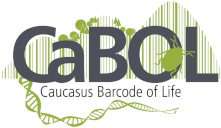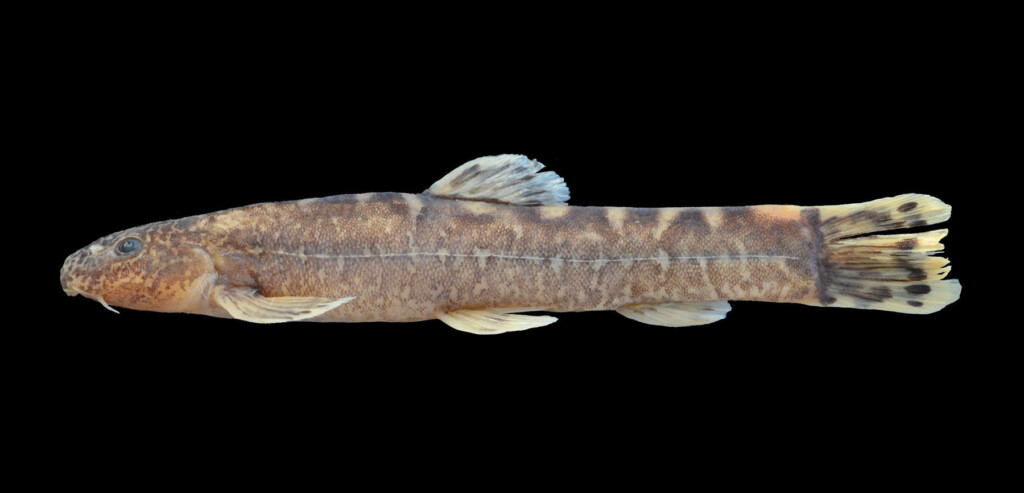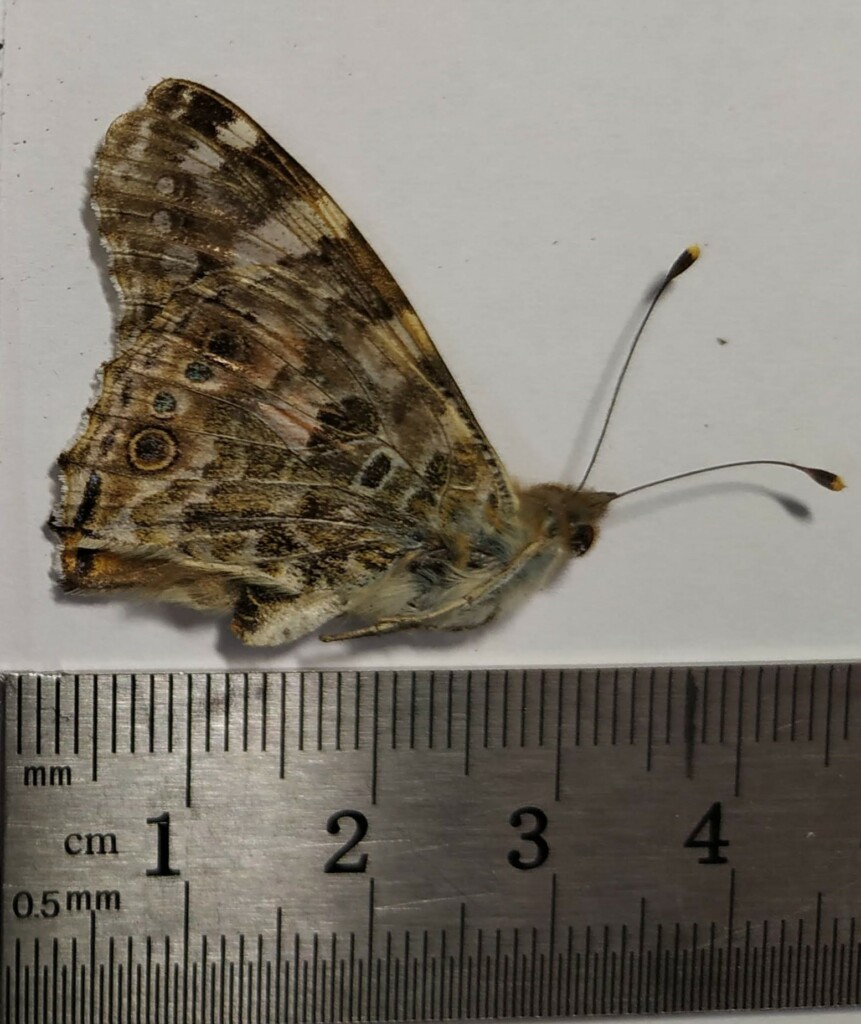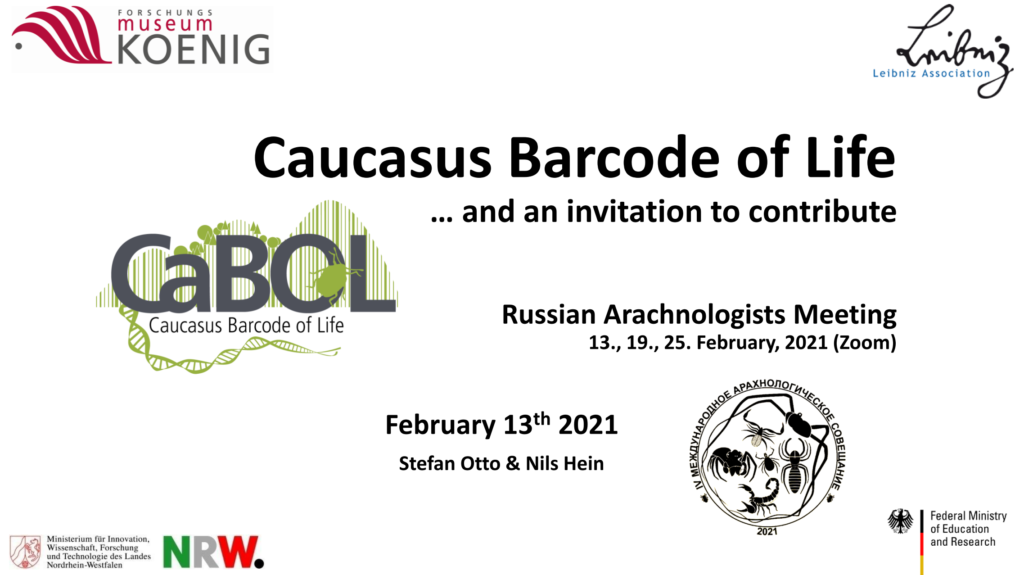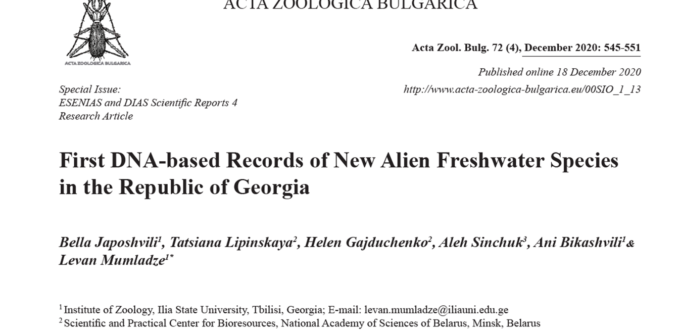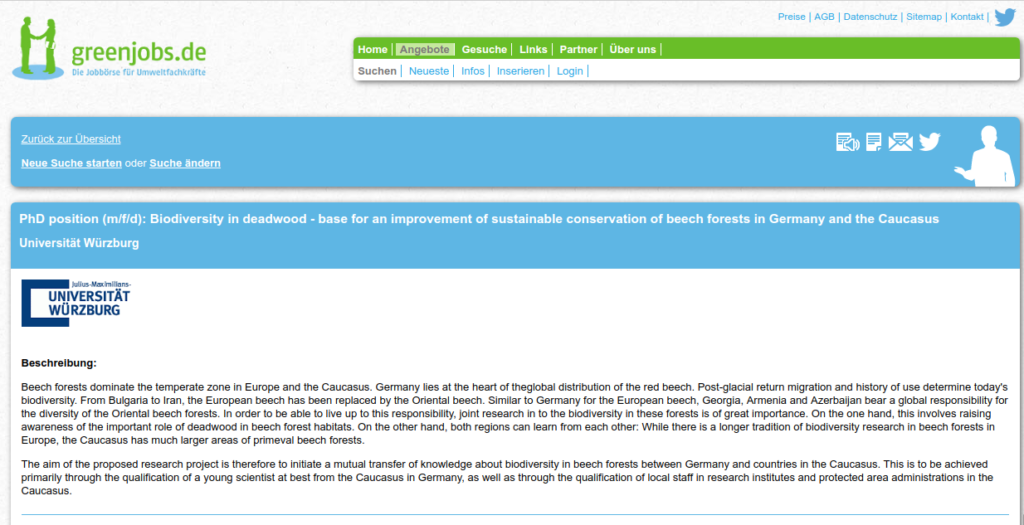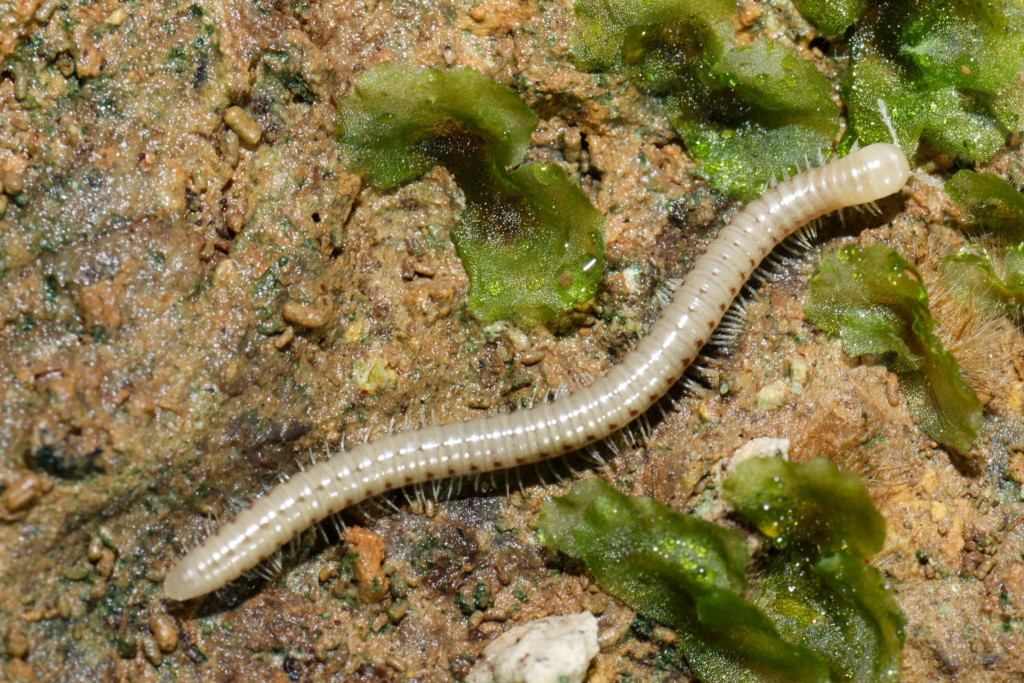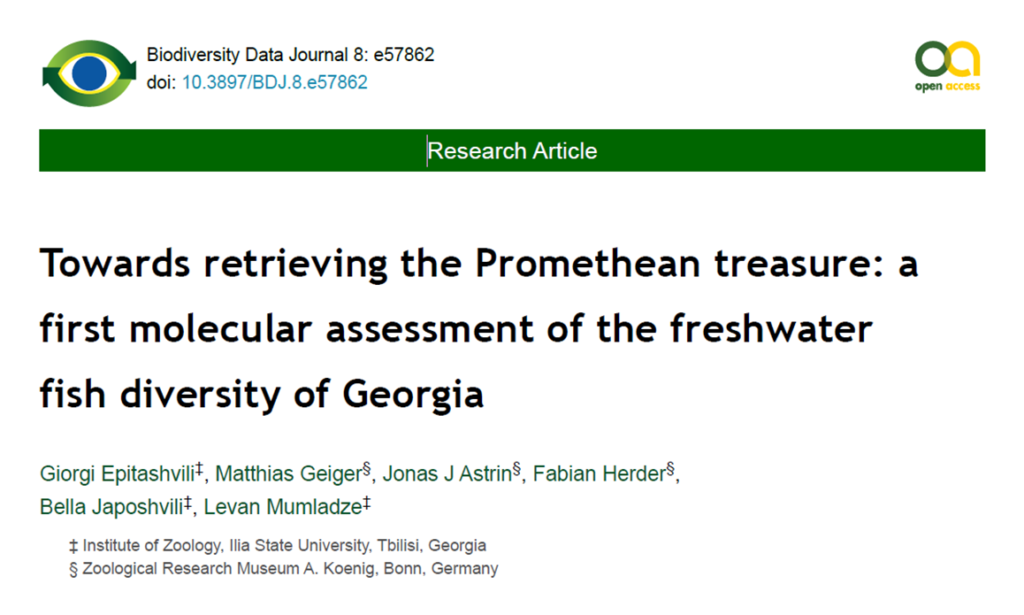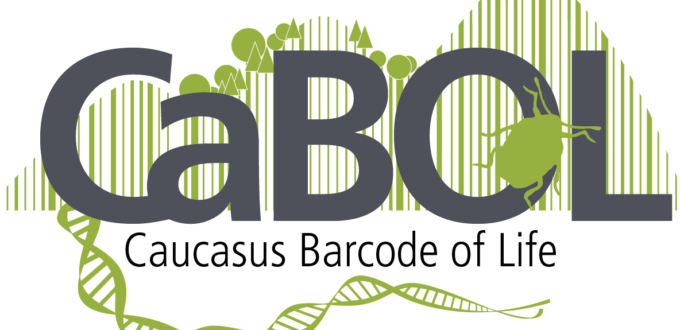Freyhof et al. recently published an article in Zootaxa. Oxynoemacheilus phasicus, new species, is described from the Rioni and Enguri River drainages in Georgia. Oxynoemacheilus phasicus is distinguished by molecular data (COI) and from other Oxynoemacheilus species in the O. brandtii group by a mottled or marbled flank pattern in adults, a slightly emarginate caudal […]
Results of 2019 Georgian BioBlitz mollus...
In this work, the results of surveys of land and freshwater molluscs collected during a BioBlitz event held in Georgia in 2019 are reported. In total, 54 mollusc species belonging to 27 families were recorded at 44 sampling sites in Georgia. During the BioBlitz core event held from 4-7 July 2019 in the Kazbegi Municipality […]
CaBOL as Part of Armenia’s International
Armenia’s Science Committee and Yerevan State University have published an update on its international barcoding cooperations, namely the iBOL framework and the CaBOL project, giving an overview on activies, shared responsibilities and first results. Follow the links for more information (English) (Armenian) (YSU Update, in Armenian only). iBol is an international framework of countries, governmental […]
CaBOL at the 2021 Meeting of Russian Ara...
On 13. February we presented CaBOL at the IV. Russian International Meeting of Arachnologists, which was held online. The CaBOL initiative was warmly received and we are looking forward to new contacts and contributors to our barcoding initiative. Spassibo bolshoi!
First DNA-based Records of New Alien Fre...
Japoshvili et al. recently detected two new alien species in the Republic of Georgia. DNA barcodes (CO1) were obtained from samples, which turned out to belong to Rhithropanopeus harrisii (Decapoda: Panopeidae) and Rhinogobius lindbergi (Gobiiformes: Oxudercidae). These two species were detected in Georgia for the first time. Their results emphasize the importance of taxon sampling […]
PhD Position at Würzburg University
Are you interested in writing your phD thesis in the field of Biodiversity in Germany and the Caucasus? Then you might consider applying to this position: PhD position (m/f/d): Biodiversity in deadwood – base for an improvement of sustainable conservation of beech forests in Germany and the Caucasus, University of Würzburg (Link to greenjobs.de) Deadline: […]
Check out a new Monograph on Caucasian m...
Antić & Reip recently published a monography in the European Journal of Taxonomy about the millipede genus Leucogeorgia Verhoeff, 1930 in the Caucasus. The monography contains a revision of Caucasian Leucogeorgiini and the description of eleven new species. DOI: https://doi.org/10.5852/ejt.2020.713
Lessons Learned and Contribution of Acce...
The CaBOL project is featured in a publication about 20 ABS partnerships from different regions of the world. Based on these partnerships, which involve the use of genetic resources for commercial or scientific purposes, the publication highlights lessons learned, emerging good practices and contributions to the SDGs. The publication is a first document of a […]
A first molecular assessment of the fres...
Epitashvili et al. 2020 just published a first estimation of the molecular diversity of the freshwater fishes of Georgia in the Biodiversity Data Journal. This study lays a solid base for DNA, based biodiversity assessment within the recently started CaBOL (Caucasus Barcode Of Life) project. https://doi.org/10.3897/BDJ.8.e57862
CaBOL on Instagram
The Caucasus Barcode of Life Project is on instagram. Follow us to be updated on the latest developments and get the most beautiful pictures of the fauna and flora of the Caucasus.
